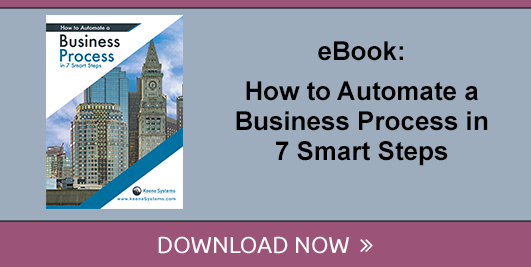The Limitations of Using Spreadsheets for Compliance
3 min read

Businesses still use standard spreadsheet applications for a wide range of different reasons. Sometimes they're used for menial and administrative tasks like data entry, other times they're used to keep track of larger issues like project progress, client relationships and more. Many organizations choose to rely on these solutions that "already exist" not because they work well, but because they work at all - and because they're seen to be more cost effective than developing something of your own from the ground up.
But the fact of the matter is that spreadsheet inefficiencies aren't just costing you money in terms of productivity - they come with a number of serious disadvantages that have grown far too important to ignore.
The Inherent Limitations of Spreadsheets
Yes, the spreadsheet applications that you're currently using may "get the job done" - but is that job being done as well as it can be? Even if you take a cursory glance at what you're able to accomplish every day, the answer to that question is probably "no."
Think about it like this - nearly every industry that you can think of now has federal, state or even local compliance standards they have to meet in terms of how data is created, how it can be stored, who can have access to that data and more. This is especially true in terms of two critical areas: documentation and privacy.
These challenges are nothing new for industries like healthcare, real estate or even finance - but now, even the marketing industry has to deal with constantly changing FTC social media guidelines, disclosures on sponsored posts and similar factors.
In an age where you now have to proactively try to keep up with compliance and regulations, what sense does it make to continue to depend on a solution that was built with NONE of that in mind?
How are you going to be able to prove compliance, especially in the face of regulations that are constantly changing, when you're working with an off the shelf spreadsheet solution that was probably never actually intended to be used in the way that you're currently using it?
More often than not, companies have to change their processes or procedures to both A) meet compliance regulations, and B) do so within the restrictions of the spreadsheet application they're currently using.
But luckily, this is the type of thing that organizations simply don't have to worry about any longer. These changes aren't just able to be minimized - oftentimes they can be totally eliminated. This is the type of serious advantage that you're only going to get by setting aside that off the shelf "stop gap" solution and turning towards custom software for all of your needs.
The Major Advantages of Custom Software
Even when you go beyond the fact that custom software means that you (and your employees) no longer have to change the processes and procedures they already feel comfortable with, replacing off-the-shelf spreadsheets with a custom alternative still brings with it a wide range of additional benefits that can't be ignored.
According to Forbes, custom software allows you to enjoy advantages like:
Increased employee efficiency and productivity. Simply put, programs designed with your needs in mind are in a better position to support and empower those needs, allowing every member of your team to work faster and smarter.
A significantly faster reaction time. Once a custom solution is in place, your team is in a better position to grow and evolve as the industry around you does the same. You simply don't have the ability to do this if you're still spending huge amounts of time every day dealing with the hassles of spreadsheets.
In the end, it's important to remember that technology is the backbone of every business - the actual industry that you're operating in doesn't change this fact. Technology shouldn't force you to change the way you like to work - it should be built with the way you like to work firmly in mind. It shouldn't hold you back - instead, it should empower you.
Spreadsheet inefficiencies make these goals nearly impossible to achieve, which is why a "one size fits all" approach to software just won't do in the 21st century. You also gain a significant competitive advantage that a lot of people just don't think about. When you're using the same spreadsheet techniques that your competitors do, it's far more difficult to outperform them. Switching to something designed with your unique business in mind gives you a chance to innovate in a way they simply cannot.
To learn more about the importance of eliminating human error in your operations, please download the eBook titled "How to Automate Business Process in 7 Smart Steps."

